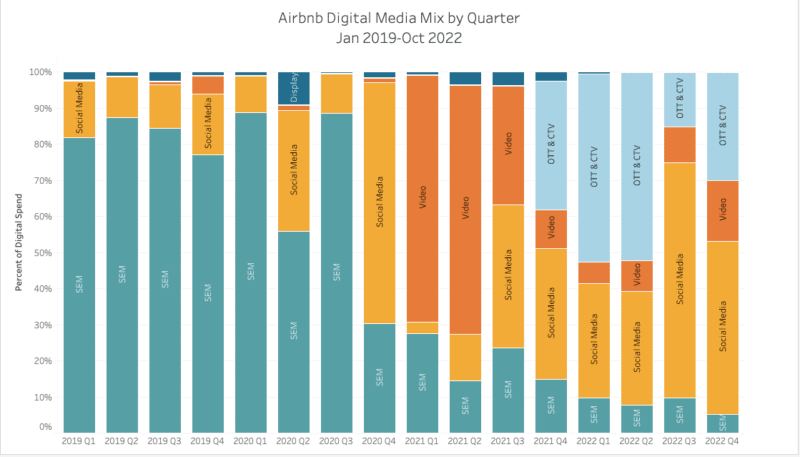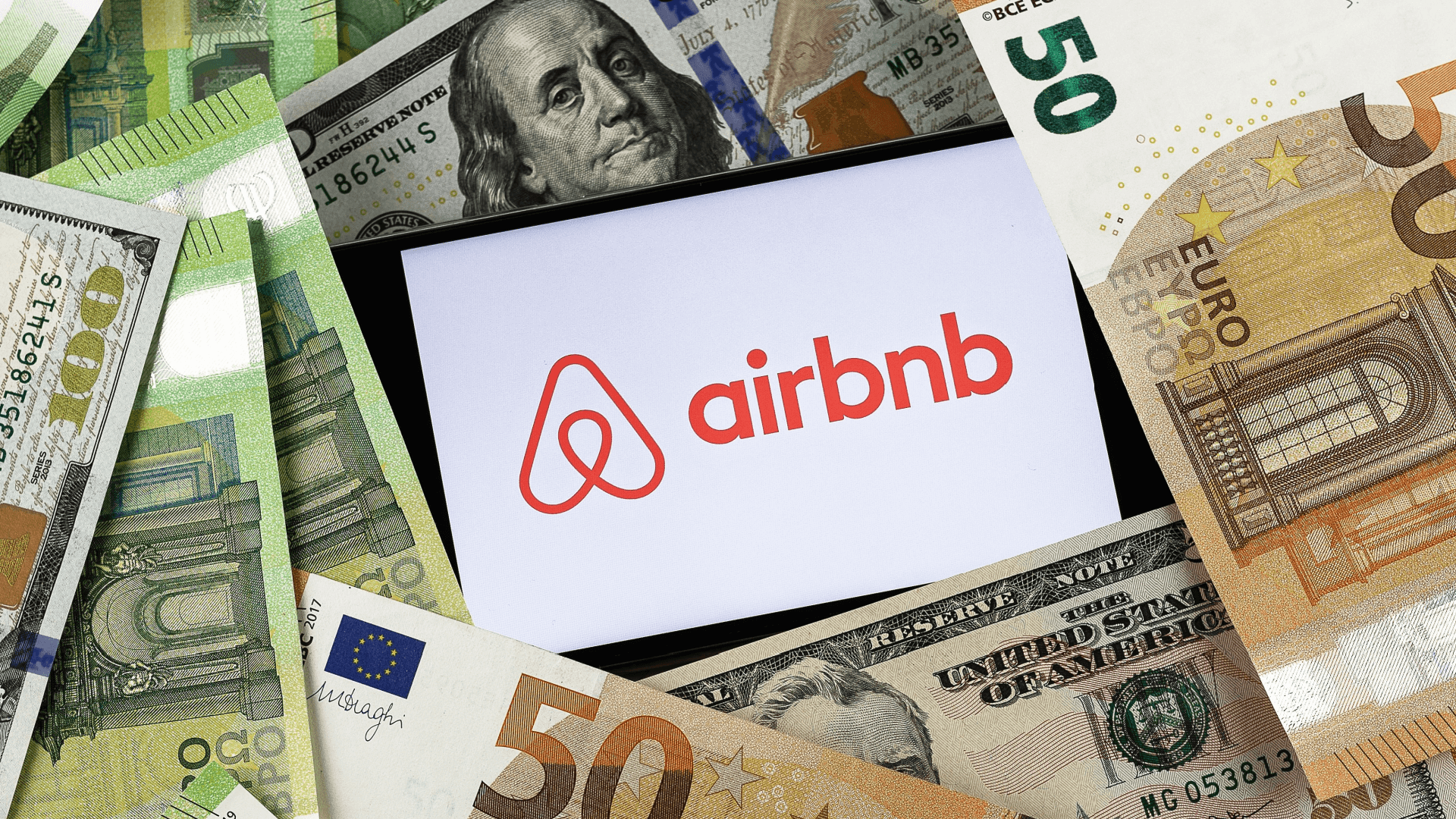A recent Wall Street Journal article reported that Airbnb’s “strategy of slashing advertising spending, investing in brand marketing and lessening its reliance on search-engine marketing is continuing to pay off.”
This remark has sparked discussions among many advertisers, wondering if a similar strategy may work for them.
In 2019, Airbnb started to move budget away from search marketing in favor of broader marketing initiatives.
The pandemic accelerated the shift, with video and social media picking up the largest share of digital spend in 2021, according to data gathered from Semrush and Pathmatics.

In Q4 2021, The company then expanded its digital strategy into OTT and CTV, further reducing the budget share for PPC.
With CPCs rising across performance media channels, advertisers are left wondering if moving away from performance marketing channels is the right move.
But before you take a similar leap, let’s look at three key considerations.
1. What external forces are impacting your business?
The pandemic played a considerable part in Airbnb’s strategy shift.
The company dropped its marketing spend from April 2020 through November 2020, when it reappeared with a strong social media presence.
Then in December, Airbnb reminded customers with video ads that the brand will be there when people are ready to travel.
Consumer behavior changed, and Airbnb needed to employ a medium that would reassure and inspire trust. What better way to do that than with video?
It’s critical to be aligned with the external forces impacting your marketing mix.
Are you creating a new category? Or trying to change consumer behavior?
If so, a shift to brand-heavy advertising may make good sense.
Get the daily newsletter search marketers rely on.
2. Have you reached a tipping point?
Ninety percent of Airbnb’s traffic comes directly to the site. Their market share in the space is nearly 20%, according to Second Measure.
Airbnb had already reached its tipping point. Its category was well-established, and it was a leader in that category.
Instead of using performance media to drive new customers, they could use it as strategic levers for supply and demand.
Think of their brand awareness spend as the large workhorse and performance media as fine-tuning.
Before deciding where to spend your marketing dollars, know where you’re coming.
Are you the leader in your category? Are the majority of your visitors coming directly to your site?
If so, it makes sense to place a heavier weight on brand advertising and rely on performance media for fine-tuning.
But if you need to acquire more customers to reach a tipping point, consider a heavier performance media strategy.
3. Do you have wasted spend?
Finally, from the outside, it’s difficult to say how much of Airbnb’s performance marketing spend was wasted.
But surveys from Rakuten Marketing and Commerce Signals indicate that marketers routinely waste 25-40% of their marketing budget.
Simply cutting this wasted spend and reusing the dollars for broader marketing initiatives may give advertisers similar effects to what Airbnb saw.
Evaluate your existing performance marketing dollars to find the wasted spend hiding in plain sight. Online audit tools can help, as well as audits from marketing agencies.
Rethink your marketing mix based on your unique situation
It’s worth reemphasizing that Airbnb still spends ~50% of its budget on performance media.
So while their mix shifted from the previous 80%, the company still heavily relies on performance media to help balance supply and demand.
As advertisers look at whether to move budget to brand awareness, the roles of marketing channels should be reevaluated.
Allowing each channel to play to its superpowers can create a wonderful symbiotic relationship within your marketing mix.
So if you are considering a strategy shift similar to Airbnb, it’s important to think critically about your business before making the move.
Think about your category, consumer behavior, and market position. Finally, evaluate any wasted spend.
And if you’re ready to take the plunge, remember to test, measure, evaluate and repeat.
Opinions expressed in this article are those of the guest author and not necessarily Search Engine Land. Staff authors are listed here.
Related stories
New on Search Engine Land

